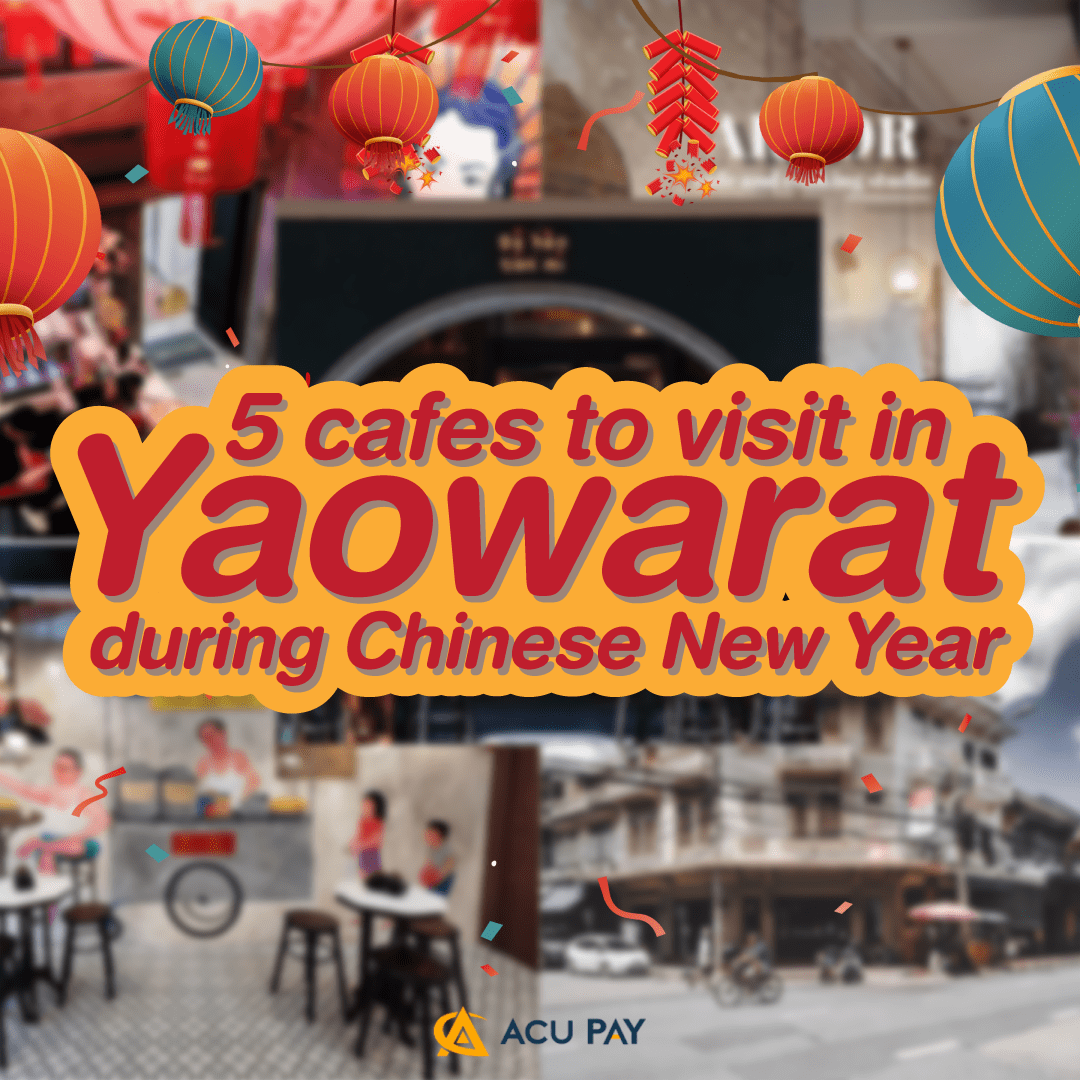

The Chinese New Year festival is one of the most important days for the Chinese people. because it is a traditional New Year’s Day for Chinese people in China and around the world. Beginning on the 1st day of the 1st month of the Chinese calendar, the Chinese New Year does not fall on the same day every year and does not correspond to the international. It falls from late January to mid-February every year, or at the end of winter and the beginning of spring.
Nowadays, Chinese New Year is celebrated in many countries, including Thailand, a country in Asia with a large number of Chinese or Thai-Chinese-descent people. For Thais of Chinese descent, the traditional practice of Chinese New Year is divided into 3 days: shopping day, paying respect day, and visitation day.
This year, the government has not declared Chinese New Year a long holiday like in 2021 but declared February 12 as a special public holiday.
The shopping day is the day before the end of the year. The most common practice on shopping days is to buy food, fruit, and other offerings before the stores close for a long holiday.
Morning (Dawn) | Late morning | Afternoon |
| – pay respect to gods | – Paying respect to “Pai Pae Bo”, which is to pay respect to ancestors, parents, and relatives who have passed away. | – Pay respect to “pai hor hia tee”, which is to pay respect to a good brother or sister. |
| – Offerings: 3 kinds of meat, or “sa-sae sam-cheng”, including pork, duck, chicken, or adding some fish and liver to become 5 kinds of meat, or “Now Sae”, liquor, tea, and gold paper and paper money. | – The offerings will consist of a-sae, savory dishes, most of which will be made according to the deceased favorite. including the burning of paper money, gold paper, and paper clothes dedicated to the ancestors. After that, every member of the family will eat the offered food together for good luck, and it’s also family reunion day. and they will give members a red envelope after the meals. | – The offerings will be Kanom Keng, kanom tian, fried sugar taro, paper money, and gold paper, along with firecrackers to ward off evil and call for good luck. |
We already know that at different times, there are different people to pay respect to and different offerings. So, what does each offer mean? Let’s see.
Savory
Dessert
Peanut Bar
Sesame Bar
Sugar-coated nuts
candied winter melon
puffed rice bar
Fruit
Things not to do during the Chinese New Year
The visitation day is Chinese New Year Day. Which is on the 1st day and 1st month of the year. On this day, Chinese people pay respect and bless their elders and their loved ones by offering golden oranges. The reason for giving an orange is that the orange is pronounced in the Teochew language as “Kik”, which is synonymous with happiness or fortune. Therefore, giving oranges is like giving happiness or good fortune. Four oranges will be given, wrapped in a man’s handkerchief. It is a day on the Chinese consider auspicious. Refrain from committing any sins. For example, they are forbidden from speaking harsh words or cursing anything because they are considered unlucky for the whole year; no debt collection; no broom handling; and dressing in bright new clothes, never wearing black and white in any case, and then going out to visit, bless, and rest outside. And for good fortune, they will eat the first meals of the day with vegetarian food. In addition, there are many traditional Chinese New Year activities. The other thing is that today is a good day to say “Xin Jia yu Yi Xin ni had xai”.